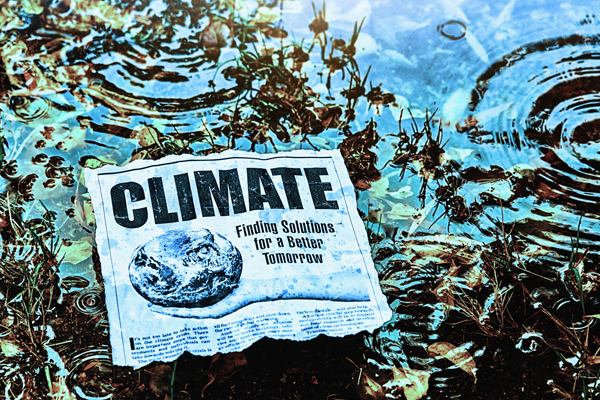It's in the news: we're decarbonising!

How can journalists help citizens understand what net zero entails? What does it mean for them, given their values and livelihoods?
This event will gather journalists from various backgrounds to discuss the challenges they face in informing and promoting balanced public discussions about decarbonisation, particularly in the context of looming local and general elections. Media coverage of climate change has long centered on alerting the public about, as well as debating and contesting, the dangers of climate change. Today, history has moved on. The UK public understands this issue is real and urgent; by and large, Britons supports decarbonisation of the economy. Yet, decarbonisation is at once a grand political project – offering the possibility of revamping and redesigning the make-up of infrastructure, technological networks, and land-use, in ways that will increase well-being, health, and possibly the vitality of many local economies – but also a slow process, difficult to understand for the lay person, full of trade offs and uncertainties.
Speakers
Roger Harrabin (@RHarrabin) worked as the Energy & Environment Analyst at the BBC from 2004 to 2022. Roger has succeeded in popularising complex aspects of climate change that do not generally fit in the usual events-driven news cycle. Harrabin was founder presenter of BBC Radio 4’s environment magazine Costing the Earth, bringing a lighter touch to environmental issues and to question environmental goals.
Fiona Harvey (@fionaharvey) is an award-winning journalist who has covered the environment since 2004, at the Financial Times and then for the Guardian. She has attended almost every UNFCCC Cop since 2004, and interviewed many world leaders. She has twice won the Foreign Press Association award for Environment Story of the Year, the British Environment and Media Awards journalist of the year, and in 2020 she was named in the Woman’s Hour Power List of 30 top UK women, focusing on Our Planet.
James Painter is a research associate at the Reuters Institute for the Study of Journalism, a senior teaching associate at the School of Geography and the Environment, and an external collaborator on the LEAP project at the Oxford Martin School, all at Oxford University. His main research interests and publications center on the portrayals of climate change in legacy, digital-born, and social media around the world, and environmental communication in general.
Adam Vaughan (@adamvaughan_uk) is the environment editor at The Times. He covers everything from climate change and biodiversity to farming and pollution. Working as a digital and print journalist for more than two decades, he was formerly chief reporter at New Scientist, where he covered the Covid-19 pandemic, the environment and the latest science stories. Previously he was the energy correspondent at The Guardian and worked on the newspaper’s environment desk for eight years, reporting and editing.
How to attend
For the in-person event: No ticket or pre-registration is required. Entry is on a first come, first served basis.
To join the event online register in advance register here via LSE Live
For any queries email events@lse.ac.uk.

